The two-week 2024 IOCAS International Training Course on Subsurface Mooring Observations, sponsored by the Bureau of International Cooperation, Chinese Academy of Sciences and the National Natural Science Foundation of China, hosted by the Institute of Oceanology, Chinese Academy of Sciences (IOCAS) is successfully conducted on September 14 in Qingdao, China. Fan Wang, Director of IOCAS, delivers closing remark and issues certificates to trainees. The participants enthusiastically share their training gains and experiences. Prof. Jianing Wang chairs the closing ceremony.
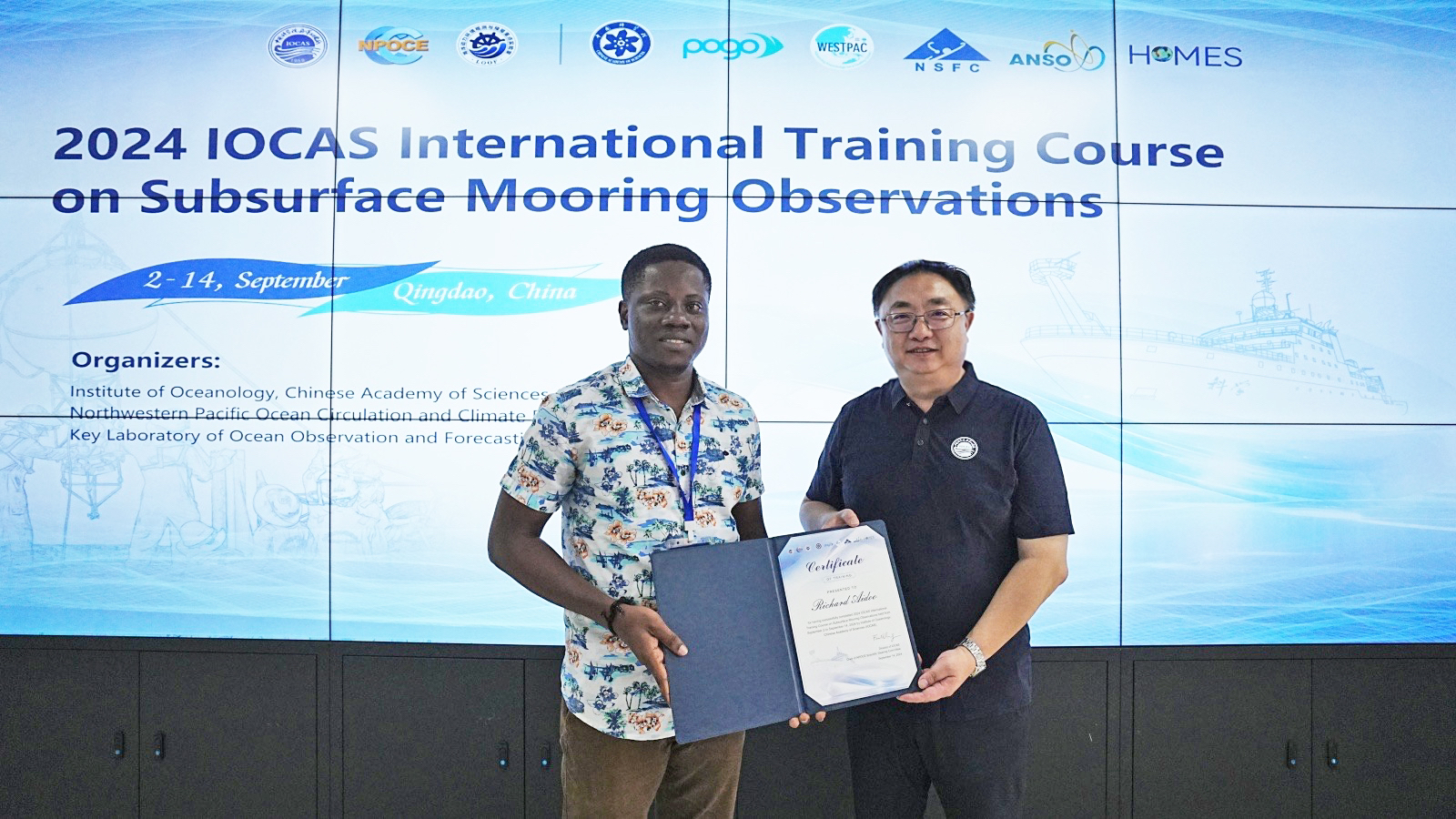
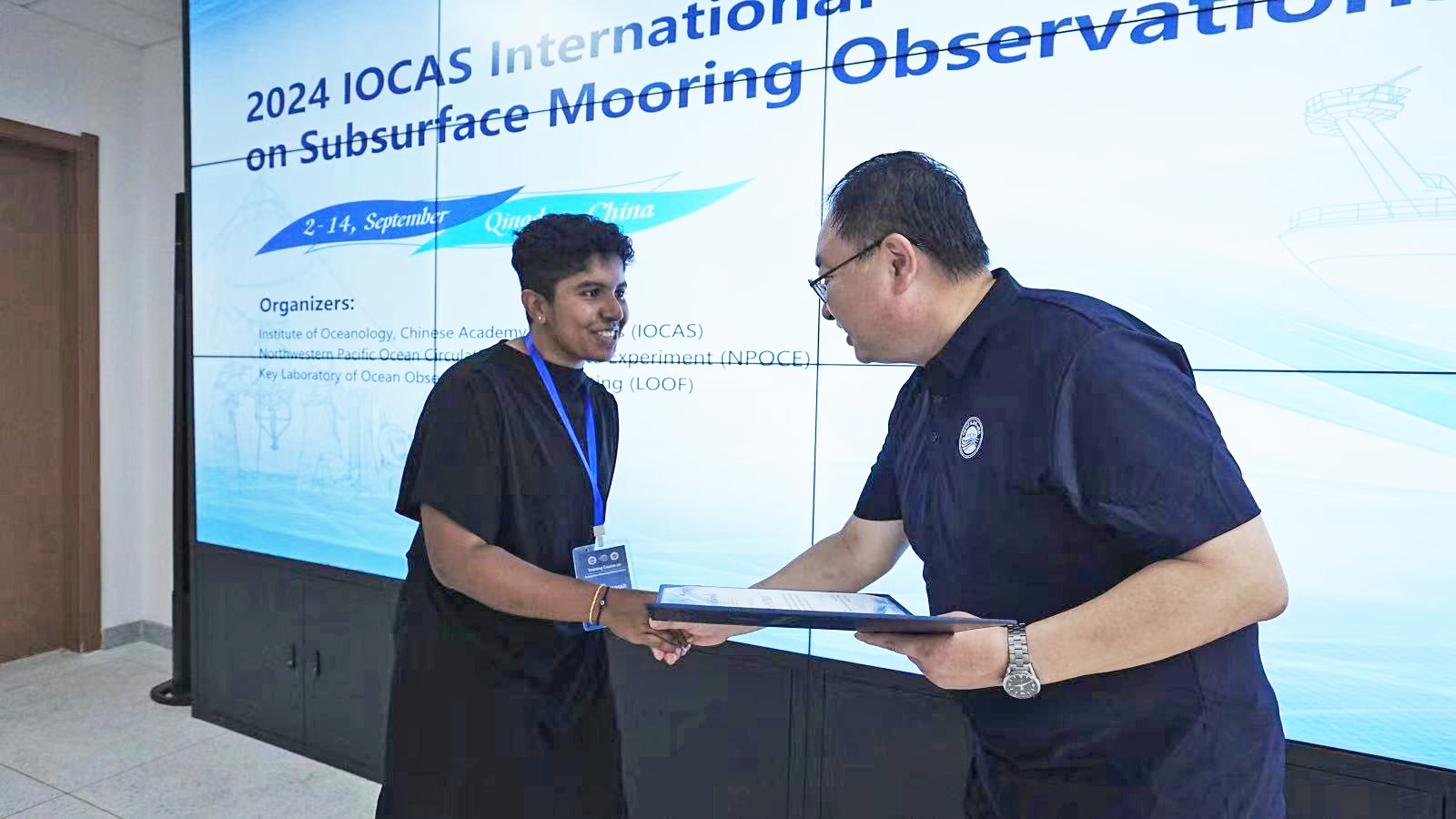

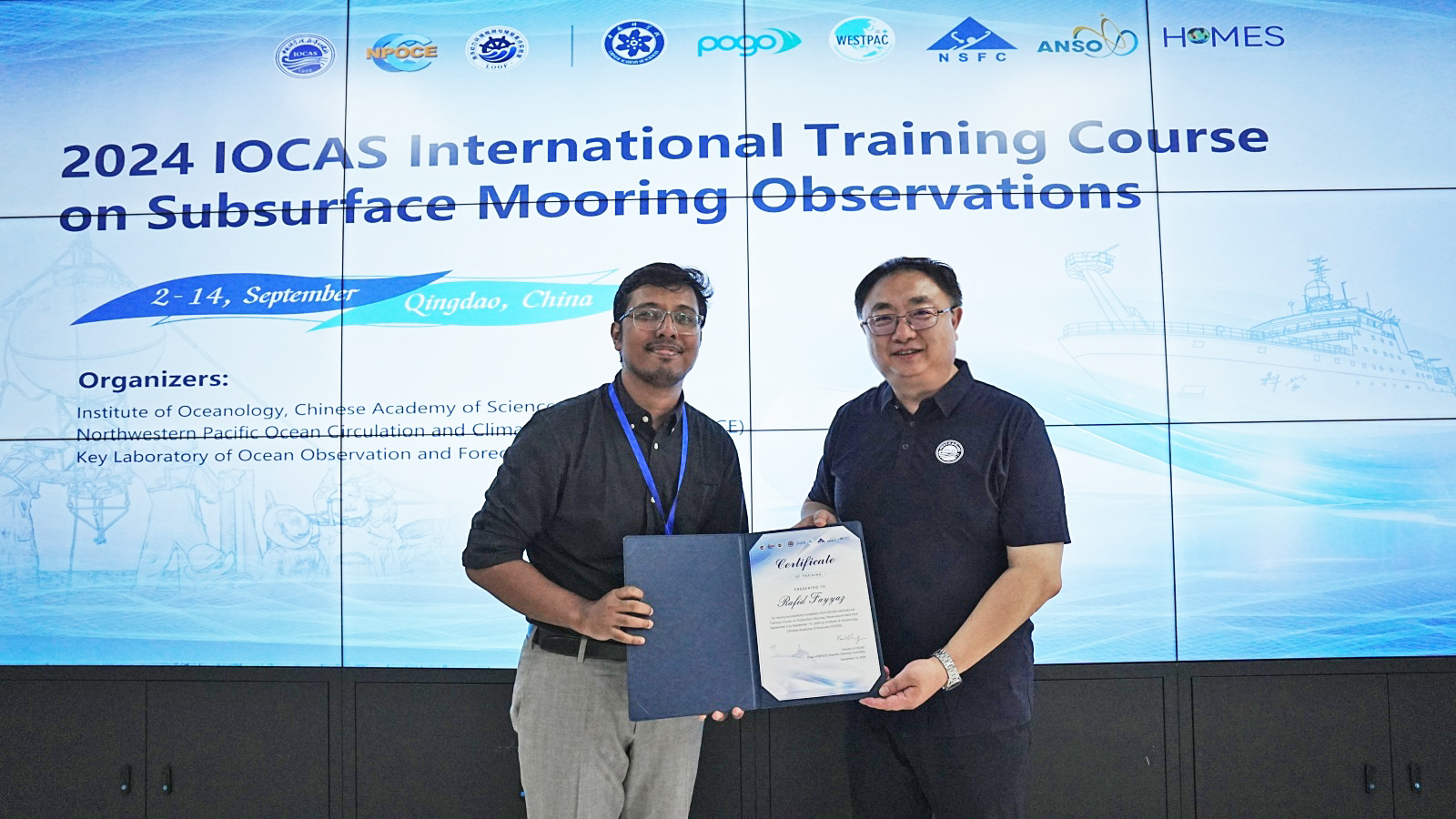
Fan Wang issues certificates to trainees
Director Wang congratulates the trainees on successfully completing the training course. He points out that IOCAS has always attached great importance to the development of ocean observation technology, successfully establishing multiple major observation platforms including the Scientific Observing Network in the tropical Western Pacific, and achieving real-time data transmission in the deep sea through technological innovation. This training not only deepens marine science and technology cooperation with the Belt and Road countries, but also enhances China's influence in the international marine science and technology community. IOCAS will continue to host training courses and build an international training brand in the future, and welcomes more institutions and organizations in the ocean field to join in cooperation, contributing to a better understanding of climate change and building a community with a shared future for the ocean.

Group Photo
The training lasts for two weeks, scientists from multiple disciplines in oceanography both domestically and internationally present a series of highly professional lectures related to ocean observations and research. Trainees gain a deep understanding of the basic theories and frontier achievements of marine observation, learn the latest design, deployment, and recovery technologies of subsurface moorings, as well as the processing and analysis methods of subsurface mooring data and the application of in-situ observation in ocean circulation, climate change, marine organism and geochemistry. Besides the above training lectures, IOCAS also organizes operational practice for all trainees on the deployment and recovery of subsurface moorings conducted on a scientific research vessel in the surrounding waters of Qingdao.
The "Belt and Road" Training Program for Developing Countries of the Bureau of International Cooperation of the Chinese Academy of Sciences, aiming to effectively improve the technical level of countries along the "Belt and Road" in the field of subsurface mooring observation, expand and strengthen marine science and technology cooperation with developing countries, so as to jointly promote the development of global ocean observation.
The training is also supported by National Natural Science Foundation of China (NSFC), IOC Sub-Commission for the Western Pacific (IOC-WESTPAC), Health of Ocean under Multiple Ecosystem Stressors (HOMEs), the Alliance of National and International Science Organizations for the Belt and Road Regions (ANSO), the Partnership for Observation of the Global Ocean (POGO), as well as Northwestern Pacific Ocean Circulation and Climate Experiment (NPOCE).
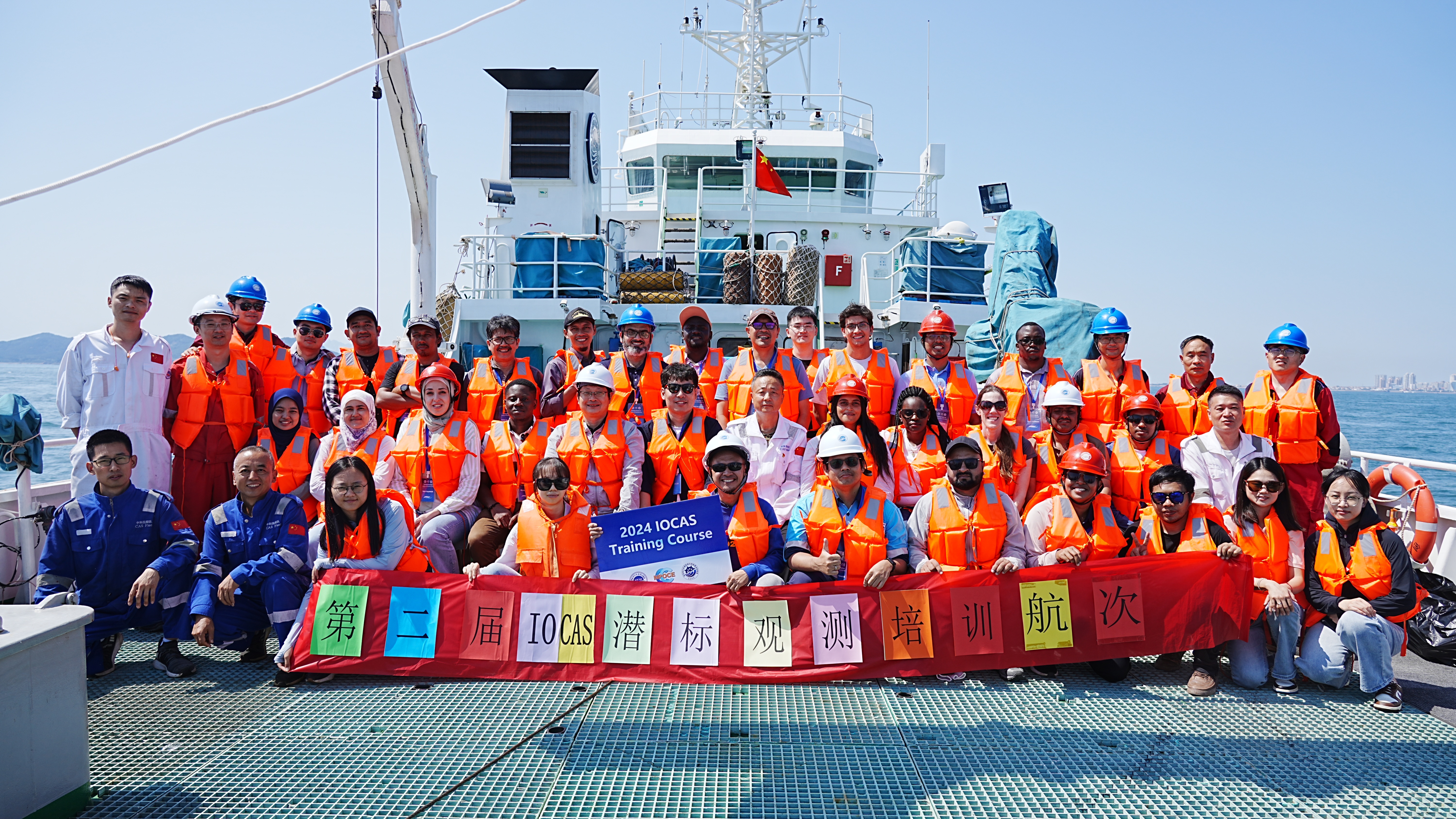
Trainees take scientific research vessel to conduct on-site training on the deployment and recovery of subsurface mooring
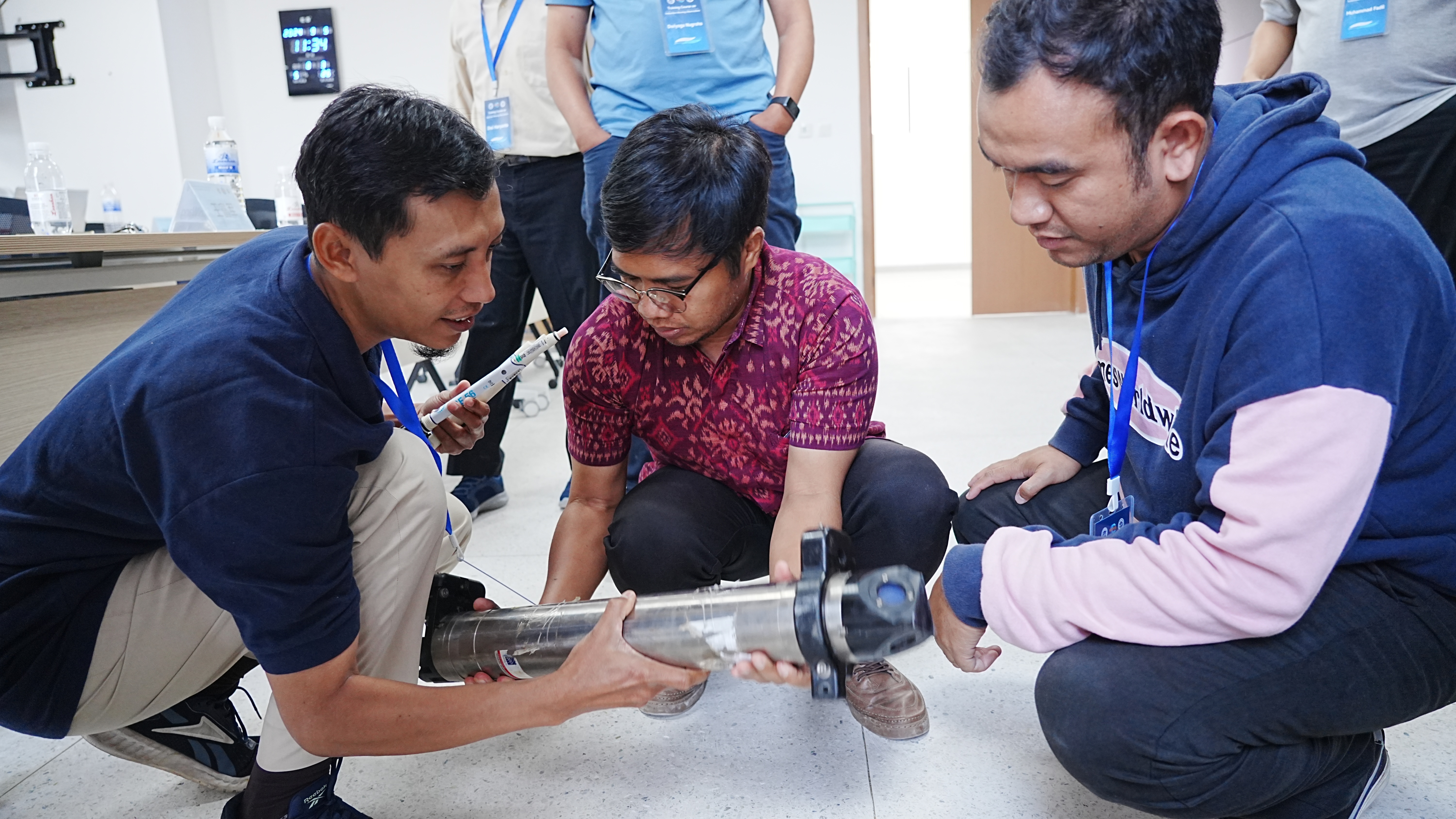
Trainees operate instruments
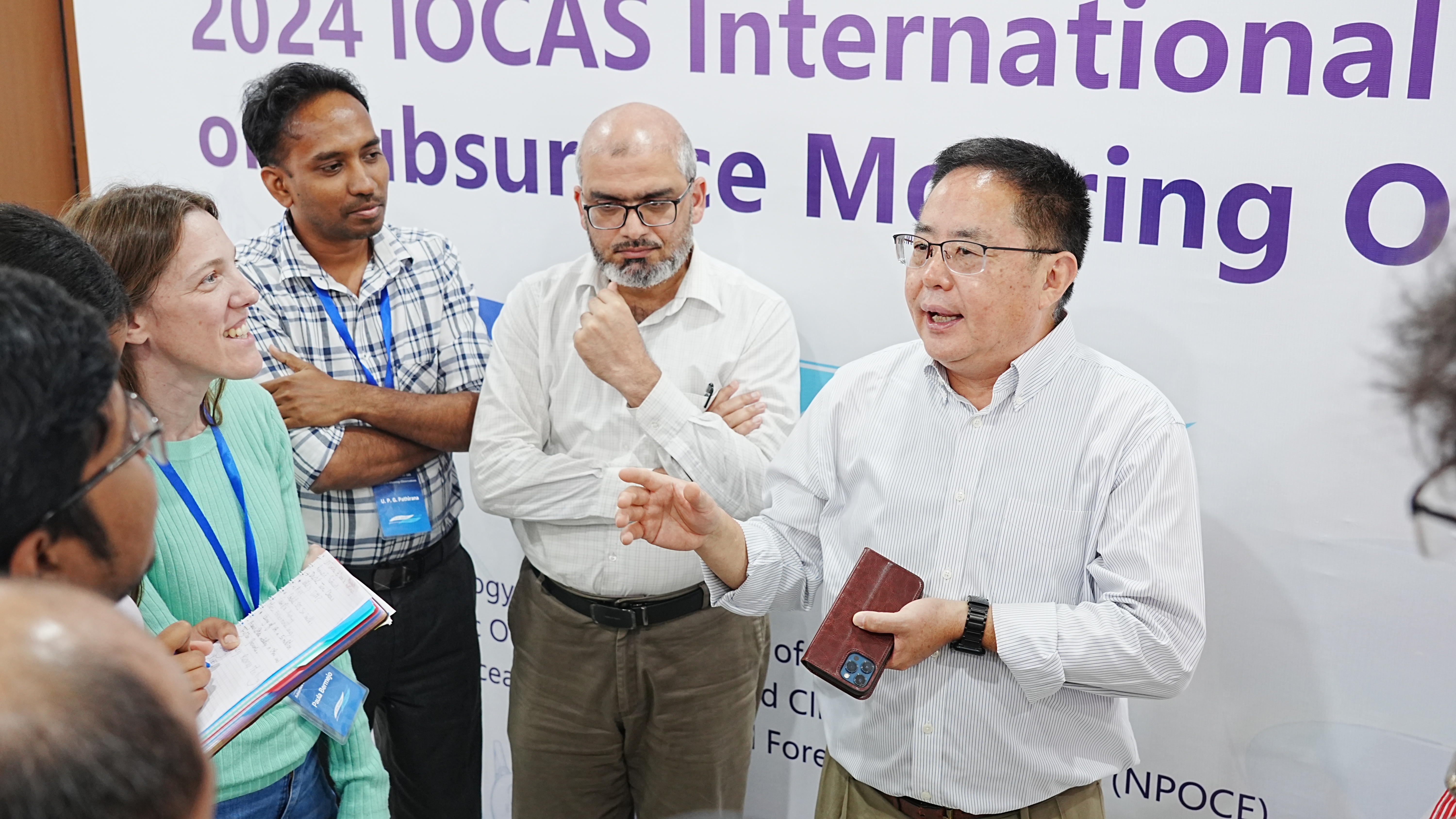
Prof. Fei Chai and trainees have a deep discussion on biogeochemical observation techniques
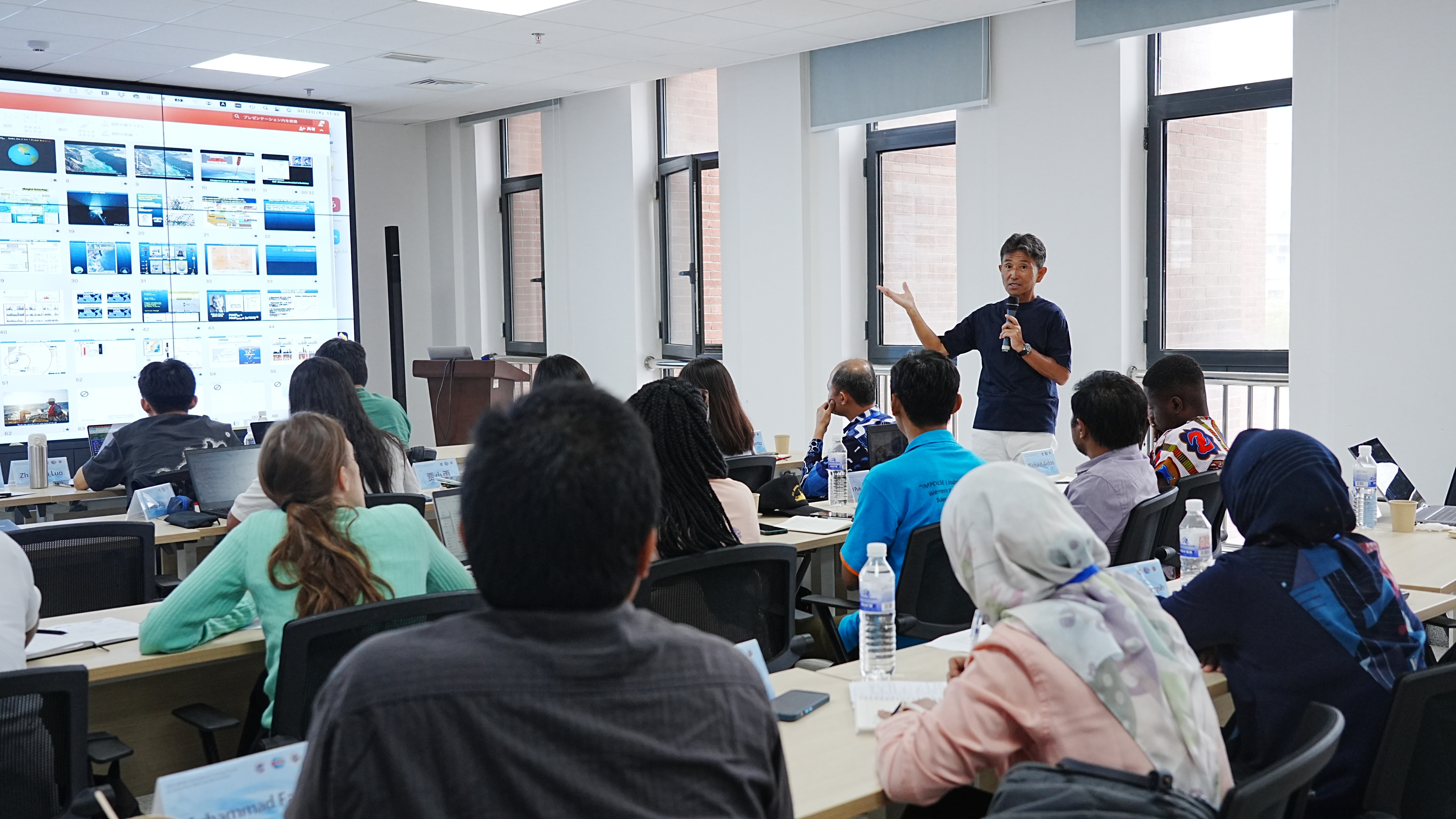
During Prof. Makio Honda's lecture
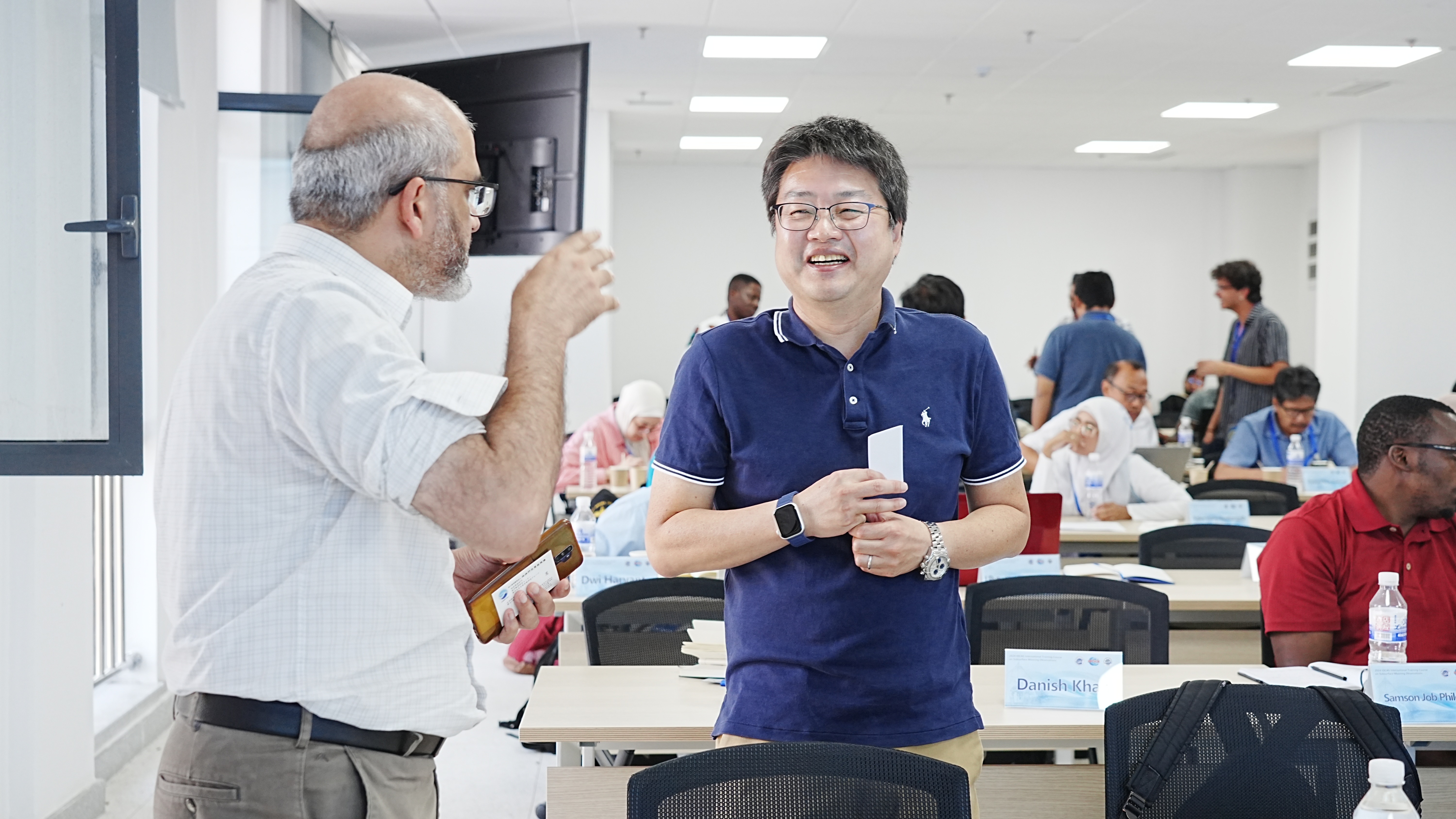
Prof. Akira Nagano communicates with trainee
Trainees all provide positive feedback on this training.
"I have benefited a lot from this training, it has a good balance between technical knowledge about the observations and equipments, and how to turn these observations into valuable scientific informations," says Joao Pedro Mancio de Amorim, a doctoral student from University of Sao Paulo. "Regardless of whether trainees have a background in physical oceanography, patient and detailed explanations from experts are very helpful in mastering the course content."
"The academic lectures are of high quality, especially Prof. Fei Chai's lectures on biogeochemical observations and BGC Argo, which have greatly inspired me. I am also satisfied with the catering and accommodation, and all organizers and volunteers are very friendly," says Paula Bermejo, early career scientist from CESIMAR-CONICET.
"The most impressive experience for me was the on-site training on the scientific research vessel," says researcher Yoke Hany Restiangsih from Indonesian National Research and Innovation Agency (BRIN). "I personally participated in the deployment and recovery of subsurface moorings. This was my first time encountering a subsurface observation system, and also the first time boarding a scientific research vessel after seven years. The long lost feeling made me very excited."
Hind Aguelal, a doctoral student at Université Cadi Ayyad in Morocco, expresses a strong interest in Chinese culture and life. "During the training, I tasted many traditional Chinese foods, and with the help of volunteers, I gradually learned how to use chopsticks. This training far exceeded my expectations, and I learned many valuable skills and knowledge from it. If given the opportunity, I hope to work in scientific research in China in the future."
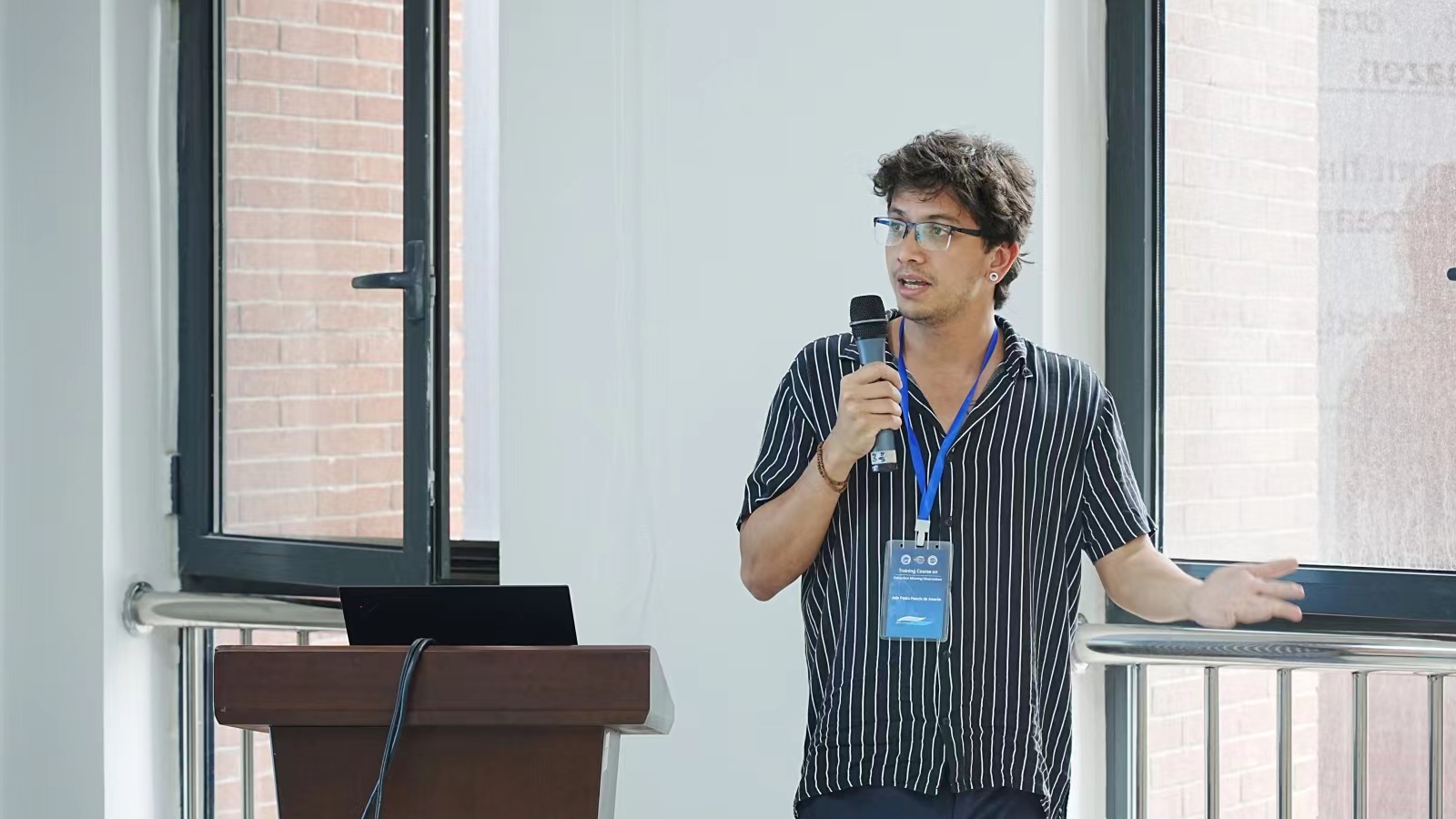
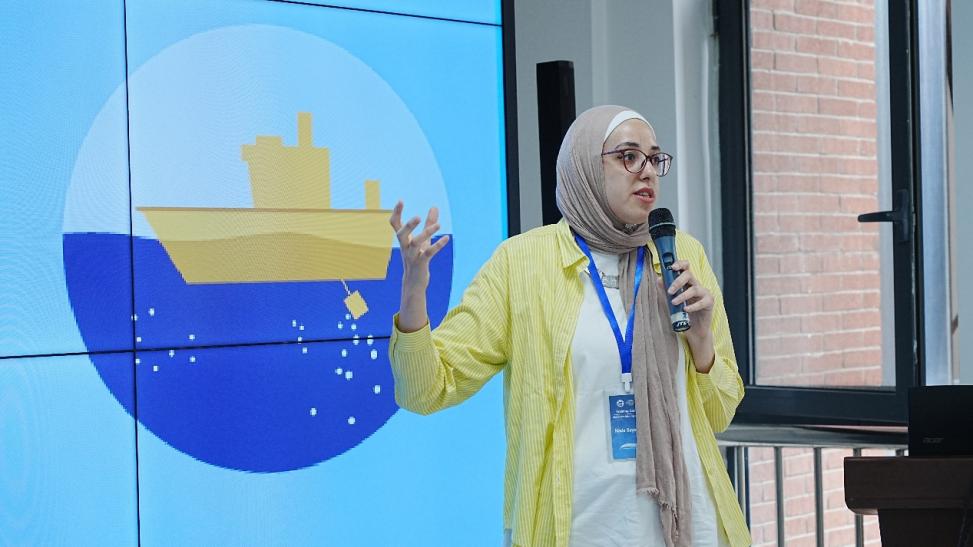
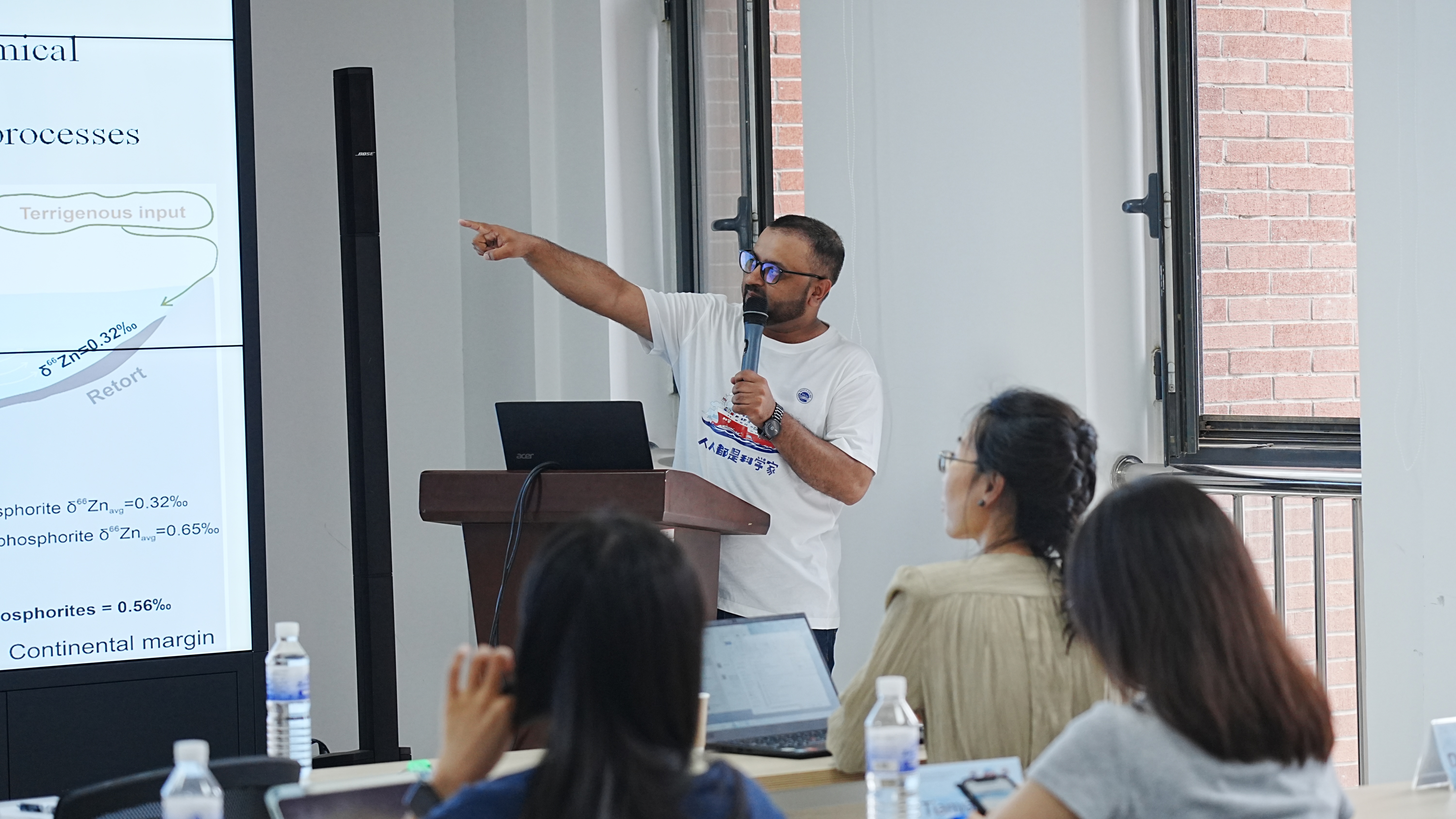
Trainees share their achievements and thoughts on this training
(Editor: ZHANG Yiyi)

